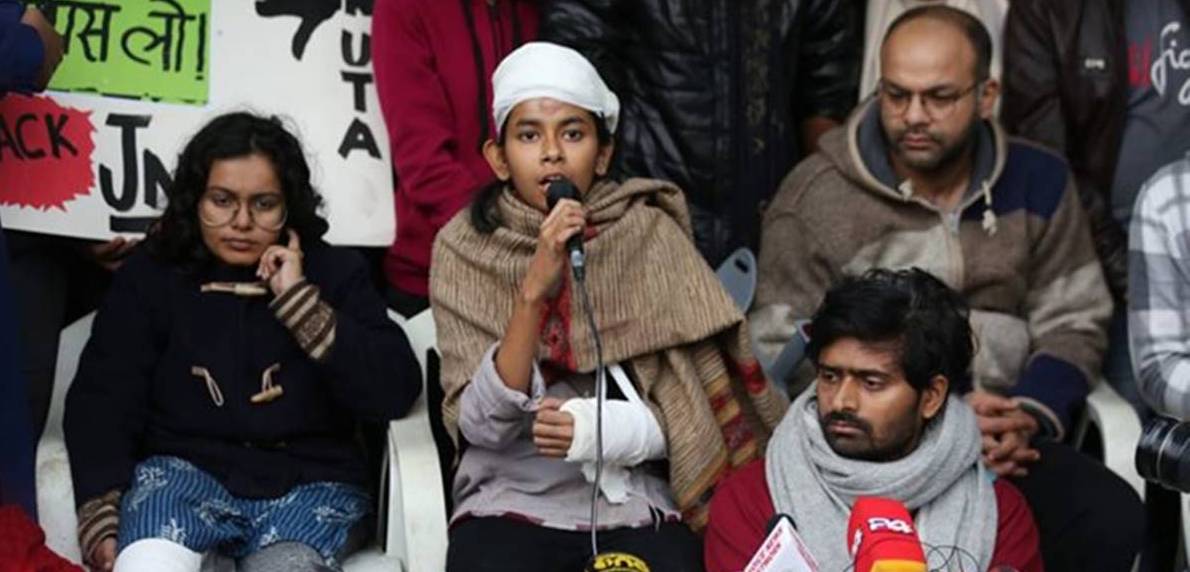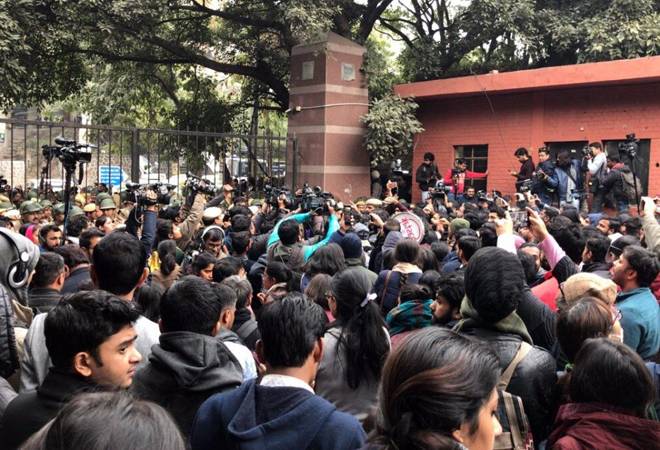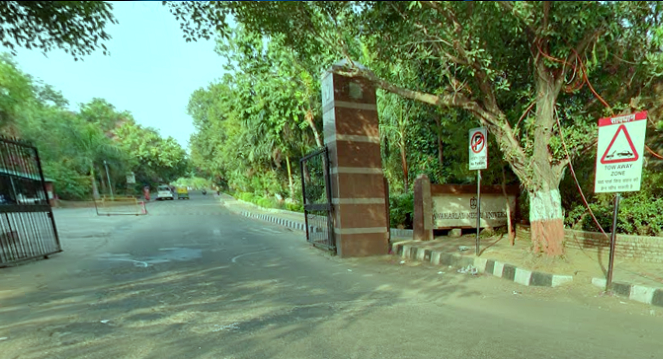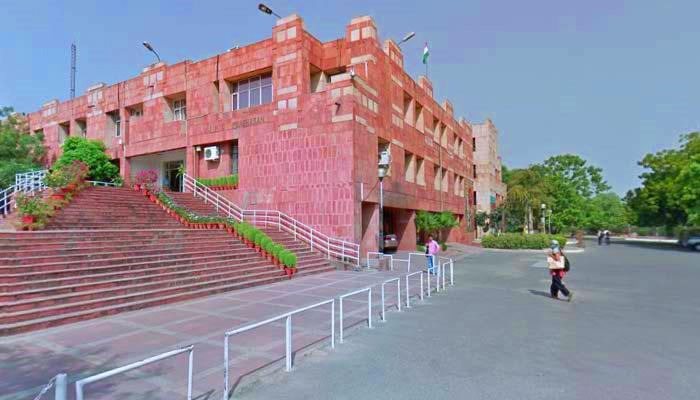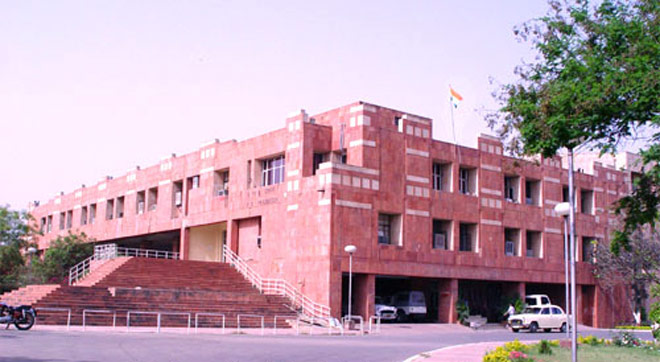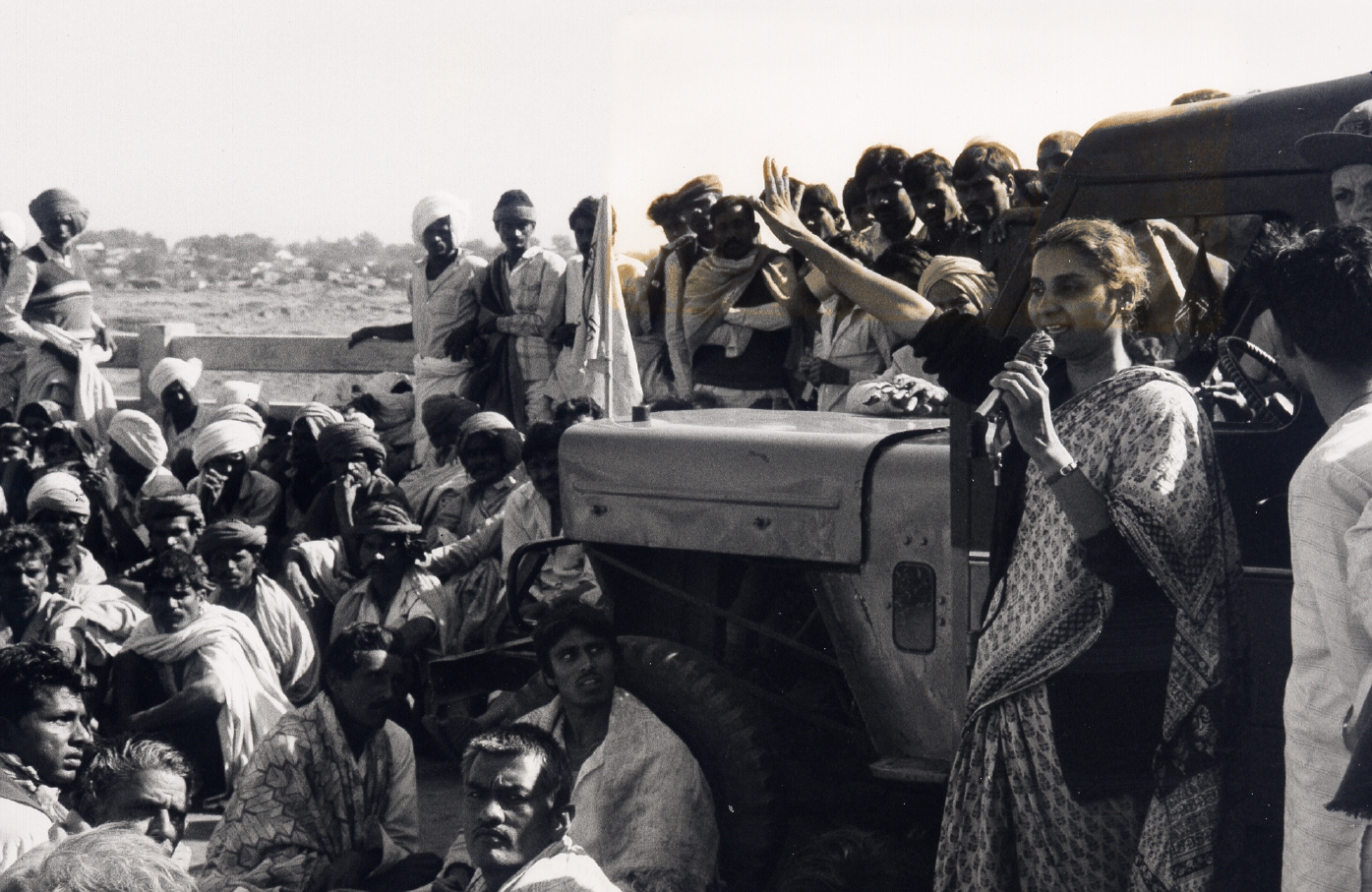Chandrashekhar Prasad was JNUSU President and AISA activist who had been killed on 31st March, 1997 in Siwan, Bihar during the regime of the RJD. Chandrashekahar embodied the spirit of resistance that a university like JNU stands for.
Vikash Sharma | Editor | The New Leam
The university spaces across the country are undergoing a crisis that in many ways is unprecedented and in many others a revival of a consistent trend of destroying institutes of higher learning.
It is but obvious that any ideologically obsessed political regime feels dissatisfied with platforms that produce counter-hegemonic debate and dialogue and therefore it is not surprising that many universities in India that have had a culture of questioning the present world order or the political rhetoric have suffered.

Students study in universities not merely to get an access to an official degree that would later enable them to secure a career but also to carve out a personality that produces active and responsible citizenry. Neo-liberal consumerist ethos paired with the revival of parochialism in the form of politics has created a dangerous combination of restrictedness, narrowness, rigidity and an altogether market oriented understanding of education.
Learning is understood to be a phenomenon that shall enable one to be capable of a high package and a glamorous lifestyle and any idea or participation that does not contribute towards this limited goal is conceived as irrelevant or unsuitable.
The attack on a university such as JNU is not just about the denial of dignity and academic choice to university and a discrete set of students and faculties rather the phenomenon brings forward the insecurity and helplessness of a system that is scared of nuanced debate.
Market friendly courses alone are understood to justify the cause of education and research- teaching in the disciplines of pure sciences and the humanities in particular is seen as obscure.
Thus when there is a any genuine attempt to contextualise the recent anti-university discretions of the political system, the need to make sense of the uncomfortable bond between status -quoist imagination and the culture of critical thought have to be probed into.
Thus the attack on a university such as JNU is not just about the denial of dignity and academic choice to university and a discrete set of students and faculties rather the phenomenon brings forward the insecurity and helplessness of a system that is scared of nuanced debate. The students of the university have made their voices heard over the years when injustice is taking place in any part of the country whether it is in the disturbed territories of Jammu and Kashmir, the imposition of the AFSPA Act in Manipur, farmer suicides in Maharashtra, anti-Dalit activates or communal violence in various parts of the country.
The culture of questioning, the educational pedagogy that has over the years equipped students to redefine education in terms of relating to the larger world and a sense of looking beyond the selfish have made JNU a platform for the nurturance of generations of young people who have their own unique thinking . When the educational machinery throughout the nation is reinforcing uniformity and unquestioned obedience, here is an educational institution that is asking people to have a mind of their own!
Amidst these difficult times we desire to invoke the calibre of a student of JNU who embodied this culture.
Chandrashekhar Prasad, the twice elected president of the JNU student union was brutally killed in Siwan, Bihar on 31st March,1997. He was loved by students and teachers across political affiliations and was lovingly given the name Chandu, by which he was generally referred. His murder led to massive outrage among the JNU community and students in a large number marched to Delhi’s Bihar Niwas and demanded that the then Chief Minister of Bihar Lalu Prasad address their crowd. They were met with police brutality.
Despite being murdered, my son will never die. Don’t take my tiny hut for a hut. It is invaluable. My son isn’t dead. He’s right here, in the form of the thousands of you.
Rashtriya Janata Dal (RJD) MP Mohammad Shahabuddin was the prime accused in the killing and Sadhu Yadav, another RJD leader, ordered the police to open fire at the student protesters. The person who put the end to this leader’s life; Shahbuddin was rewarded. He was an elected MP for four times in Siwan and he also became MLA from Siwan twice.
The death of Chandu happened at the moment when the Soviet Union collapsed and the global economy was accepting liberalisation. Chandu with his Marxist orientation said much about the plight of the disadvantaged sections of the society. He raised debates among his fellow students and was removed from being the JNUSU president. Chandu went to Siwan to begin a larger mobilization. In Siwan Chandu started his own group against Shahbuddin.
He raised issues of crime, corruption and scandals in Bihar’s politics and got a great response from the masses. Chandu aspired to alter the political situation in the country. On April 2, 1997 a bandh had been called in Bihar to resist the mass murders and scandals in Bihar. While he was addressing a nukkad sabha at JP Road he and his comrade were shot dead.
Chandu spoke of the marginalised and the destitute and raised his concerns against a system that has become increasingly anti-people. The death of Chandu symbolised the inability of the contemporary political system to welcome voices of difference. For the common people of Bihar, Chandu was a hope that would alter their lives. Chandu was not merely the president of the JNUSU or the vice-president of the All India Students Federation but he was an aspiration of the poorest masses.
To protest Chandu’s death his mother started a rally in which students from JNU went in huge numbers. Chandu’s mother said “Despite being murdered, my son will never die. Don’t take my tiny hut for a hut. It is invaluable. My son isn’t dead. He’s right here, in the form of the thousands of you.”
Siwan witnessed a huge protest and the supporters of Chandu were all united. The protests led to several protests across the county demanding justice for Chandu. The culprit was arrested but later let free on bail.
Chandu had a wonderful relationship with various communities on the campus whether it was the intellectuals, the teachers, the students and also the journalists who visited the campus. His maturity and humility allowed him to describe his thinking to both the elite and the subaltern. Chandu’s hostel room accommodated people across regions, religions and thought processes.
Once he could not pay his mess bill and his hostel room got sealed. Everyone welcomed him. Some money was collected by his comrades to pay the mess bill but Chandu had offered the money to another student who needed it.
Prasad had an important contribution in establishing the way JNU students actively organised movements across the country on issues relating to the Dalits, women, labourers and students. He resisted assertively the issues of fee hike, reservations and privatisation of the university.
Chandu loved his hometown and desired to go back to it and transform it. He became well known among the masses and his mobilization performed well. People throughout groups revered him. Chandu embodied a hope among people.
Chandu kept asserting that he wished to lead a life like Bhagat Singh and die the death of Che Guevara. People who revere him, say he did just that.


